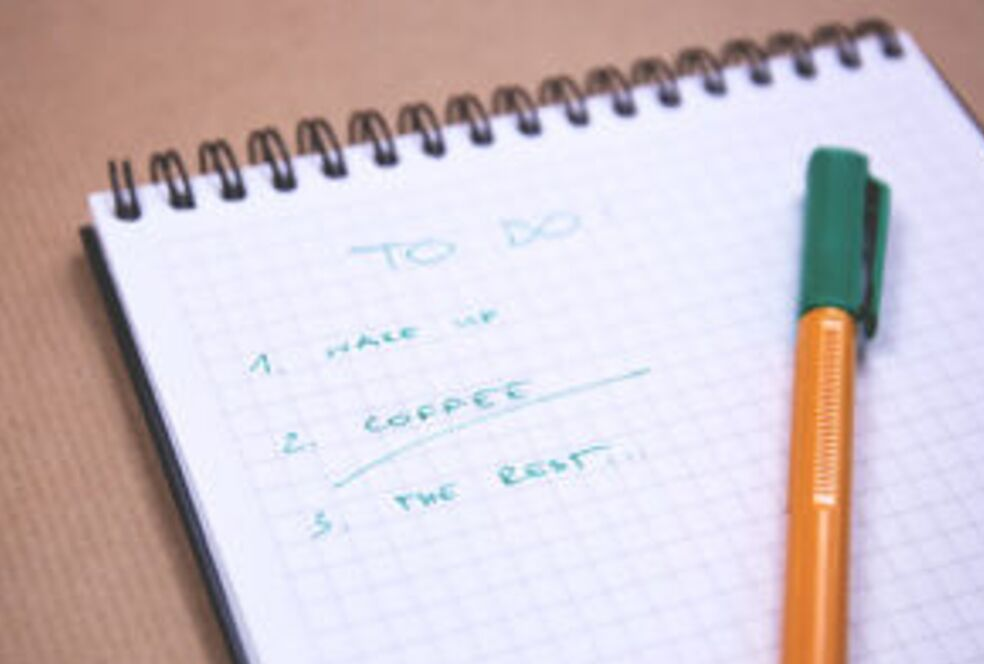 The day to day of agency recruiting for finance, accounting, and information technology professionals can often be chaos. Here are essential tips to improve your productivity and reduce the stress of multitasking.
The day to day of agency recruiting for finance, accounting, and information technology professionals can often be chaos. Here are essential tips to improve your productivity and reduce the stress of multitasking.
by: Tom Woodward, Managing Director, DeWinter Consulting
At the DeWinter Group, we have over 40 finance and accounting recruiters spending their time developing business, maintaining a candidate pipeline, scoping and running new jobs, matching for open jobs, managing consulting engagements, and staying in touch with contacts face to face and over the phone. Not to mention all of the admin work involved in updating the CRM, doing write ups, sprucing up resumes, and handling contracts.
Much of this activity is by nature both reactive and time sensitive in recruiting. If a CFO you've been prospecting to for months finally has a 30-minute window open up on his calendar, you go to the meeting regardless of what else you have going on. If a Big 4 Senior Manager can take a breath and step out for a 15-minute coffee, you meet them. If an urgent interim Controller project at a startup comes in the door, you drop everything and start sourcing profiles for it. If a candidate wants an extra 20 minutes to prep for an interview, you give them your time.
This type of work naturally produces a day to day rhythm that can be characterized as multi-tasking on steroids. There tends to be a constant monitoring of email, CRM, LinkedIn, text, phone, and Gchat for anything that might require immediate response or action. Additionally, most recruiters sit in an open office environment which makes internal communication easier but also amps up the amount of distraction.
The Myth of Multitasking
The question you have to ask yourself is how effective is it to work like this? In recent years, research has shown that multitasking is a myth. Here's a quick little test they used at a workshop in Denmark to bear this out:
- Draw two horizontal lines on a piece of paper
- Now, have someone time you as you carry out the two tasks that follow:
- On the first line, write:
- I am a great multitasker
- On the second line: write out the numbers 1-20 sequentially, like those below:
- 1 2 3 4 5 6 7 8 9 10 11 12 13 14 15 16 17 18 19 20
How much time did it take to do the two tasks? Usually, it’s about 20 seconds.
Now, let’s multitask.
Draw two more horizontal lines. This time, and again have someone time you, write a letter on one line, and then a number on the line below, then the next letter in the sentence on the upper line, and then the next number in the sequence, changing from line to line. In other words, you write the letter "I" and then the number "1" and then the letter "a" and then the number "2" and so on, until you complete both lines.
I a…..
1 2…..
This will likely take double or more the amount of time the first task took. This test is an elegant example of how we don't engage in multitasking, but rather task switching. When we're trying to heavily multitask (as recruiters often do), getting through the work day requires thousands of tiny task switches that slow us down.
As finance and accounting agency recruiters, we work on contingent searches for commission, which means productivity should absolutely be the number one priority. Thinking about the lesson learned from that test above should be shocking for a recruiter who recognizes that time is money. If it doesn't hit home yet, replace writing sentences and numbers with the important activity you do on a daily basis. What if prospecting for new business, sourcing candidates on LinkedIn, making sales calls, and matching profiles for jobs is taking you twice as long or more by multitasking throughout the day than if you focused exclusively on each task for a block of time? Realizing you could be working the same amount of time while being twice as effective as you are now is a scary proposition.
Build a Rock Solid Morning Routine
Now after 5 years in the recruiting business, I've come to realize that it's nearly impossible to perfectly segment your day. For all the reasons mentioned at the top of the article, we as recruiters need to be flexible for reactivity on a daily basis. There will be meetings that pop up out of nowhere, fires to put out with consulting engagements, and hot jobs that you need to match on right away. In these cases, building too much rigidity into your schedule could actually hurt your business over time.
So if multitasking slows you down, but you need to allow some slack in your schedule to be reactive, what's the best approach to be as effective as possible? The best strategy I've found is to build rock solid habits in the morning and then let your day become more and more flexible as it progresses. Here are five simple action steps to get you started:
- Identify the most high-value activity you can engage in on a daily basis
For me, client calls are without a doubt number 1 on this list. Whether it's prospecting for new business, discussing current projects, following up on an introduction, or checking in with people I've worked with in the past, calls are an essential high-value activity to building new business and maintaining relationships. In an age of social media, email, and text, phone calls represent a crucial method of distinguishing yourself, demonstrating your value, and learning as much as possible in a short time frame. - Block out an uninterrupted amount of time to do it first thing in the morning
By uninterrupted, I mean fully focused with no multitasking. This means no email, no texting, and no social media. Turning off email can be a frightening prospect for a recruiter, but just realize there’s very little that can’t wait 90 minutes and if it’s truly crucial you’ll get a phone call. The only tools you can use are the ones that support the activity. In the case of client calls, I have a phone and our CRM where the contact info and notes about the client live. That’s it. I don’t even send follow up emails to voicemails until later in the day. Just make a simple note in the CRM, set a follow up task, and move to the next call. In a pinch, I can go to LinkedIn to get additional details on the person or our shared contacts, but that can be a path to multitasking if you’re not careful. - Start small
How much time is necessary? I try to set out at least 60 minutes from 8:15 – 9:15 prior to our daily morning meeting. Now that I’m managing a 10 person team, I need to be much more available on a daily basis than when I was purely doing sales. For someone early in their career doing purely client side work as an individual contributor, it should be achievable to do 3 or more uninterrupted prospecting blocks per day of 60-90 minutes each. However, I’d highly recommend starting small before trying to make 60+ calls per day every day. Habits are notoriously difficult to build and break, so if you’re currently operating on the fly reactively for most of your day, start with a small block of time and do it consistently for a month before stretching yourself. - Come prepared
That 60 minutes that I spend in the morning making calls should be treated as golden time. It’s not a time to build contact lists, do research on who to call, or make sure contact info is correct. Ideally I’ll sit down at 8:15 and have a task list with 25+ contacts ready to go. I may not get through all of them depending on how the calls go, but I’m not scrambling to find more names before the call block is up. I personally like building my list and doing research at the end of the prior day when my energy is on the downswing. Regardless, make sure you arrive in the morning ready to hit the ground running. - Measure yourself
It’s critical to track your progress over time to make sure the habits stick. By making 15 calls every morning, I can hit a total of 75 client calls a week before 9:30AM in only 5 total hours of work. This absolutely has led to more job orders to work on, more face to face meetings, and better long-term relationships when I do it consistently. If you’re focusing on the candidate side, measure the number of people you reach out to in that time period, the response rate, and how many interviews and subsequent placements this leads to over time.
While it seems simple, those 60 minutes in the morning can really set the tone for the day. I feel energized and accomplished because I knocked out a lot of high-value activity in a time effective way before some people even start their work day. After that, the rest of my day is typically a mix of scheduled calls or meetings and reactive, time sensitive activity.
I should note that the way I set this up is based on my preference and personality. I’m a morning person and typically get up early and go to the gym before heading to the office. My energy is peaking around 8 AM and it’s a perfect time to make calls. I also find there are fewer reactive tasks that require immediate action that early. However, if you take a while to wake up in the morning and tend to hit your stride in the afternoon/evening, a better time to do uninterrupted high-value activity might be 5-6:30 PM.
Regardless, finding an uninterrupted block of time during the day to accomplish the most important tasks will provide a huge amount of value over the long run. And depending on the amount of reactivity needed in your day, you can toggle these blocks up and down to reduce the amount of task switching you’re doing and boost your productivity. The freedom to set our own schedules is the ultimate double-edged sword in recruiting, so make the most out of it by focusing, reducing your task switching, and being as effective as possible at the office so you can enjoy your time off!












